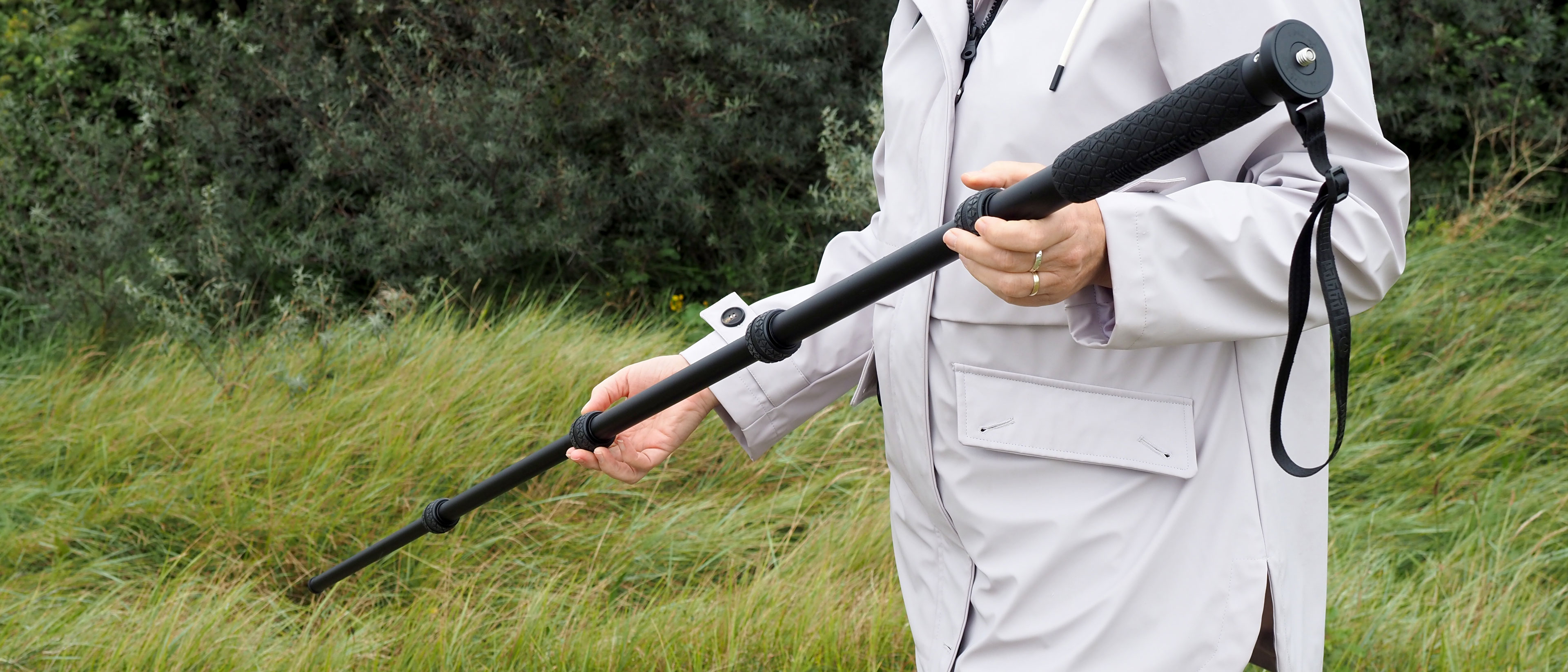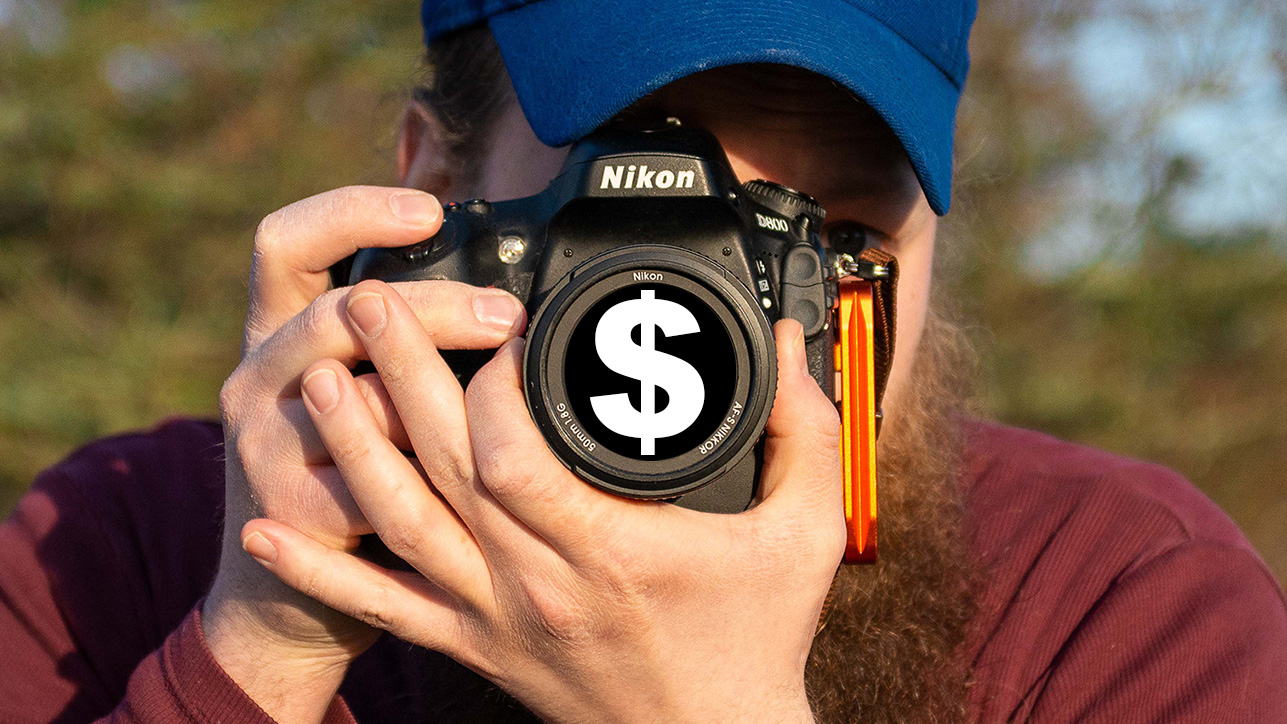Digital Camera World Verdict
The 3 Legged Thing Taylor 2.0 is a solid-feeling monopod with a terrific maximum height and the option of fitting 3LT’s Docz foot set to make it a free-standing support. The 5-section legs give it a good folded length to height ratio, and the spring-loaded double-size camera/tripod head screw at the top is a neat and handy touch. It would be even better with a tilt head or a ball head option, though.
Pros
- +
Excellent extended high
- +
Rock-solid feel
- +
Clever dual-size camera/tripod screw
- +
Optional Docz feet
Cons
- -
No head options
- -
Docz articulating ball could lock down tighter
Why you can trust Digital Camera World
The 3 Legged Thing Taylor 2.0 is one of Three Legged Thing’s more affordable monopods, launched at the same time as the premium carbon fiber Lance. You can get the Taylor 2.0 on its own, or as a kit with 3LT’s screw-on Docz feet which enable it to stand on its own.
The best monopods can be extremely useful as an extra bit of stabilization for low light or video work, and for taking the weight of heavy telephoto lenses during extended periods of shooting. They take a fraction of the time (and space) to set up needed by a tripod, and they’re easier to carry around – doubling as a walking pole or stabilizing stick on rough ground if necessary.
3 Legged Thing Taylor 2.0: Specifications
| Max height | 158cm |
| Length folded | 44.1cm |
| Leg sections | 5 |
| Weight | 0.677kg |
| Max tube diameter | 29mm |
| Max payload | 30kg (50x its own weight) |
| Material | Aerospace grade magnesium alloy |
| Colors | Darkness, Metallic Blue |
3 Legged Thing Taylor 2.0: Key features
The Taylor 2.0 is made of ‘aerospace grade’ magnesium alloy and has a 5-section leg with twist locks, to give a folded length of 44.1cm and a very good maximum height of 158cm – that’s plenty for even the tallest photographers.
It’s relatively inexpensive, but 3 Legged Thing nevertheless says it’s designed for professional photographers and videographers.
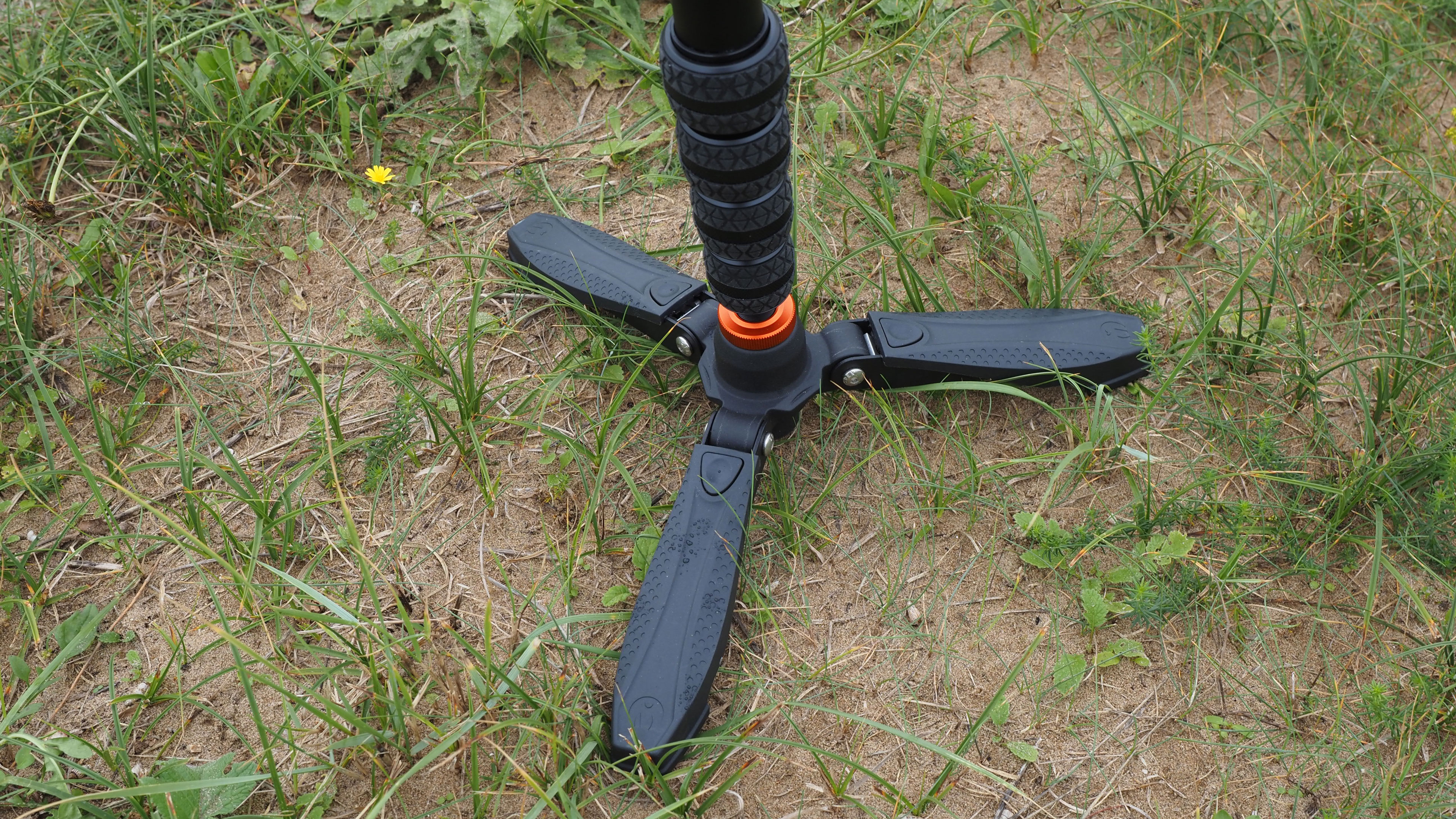
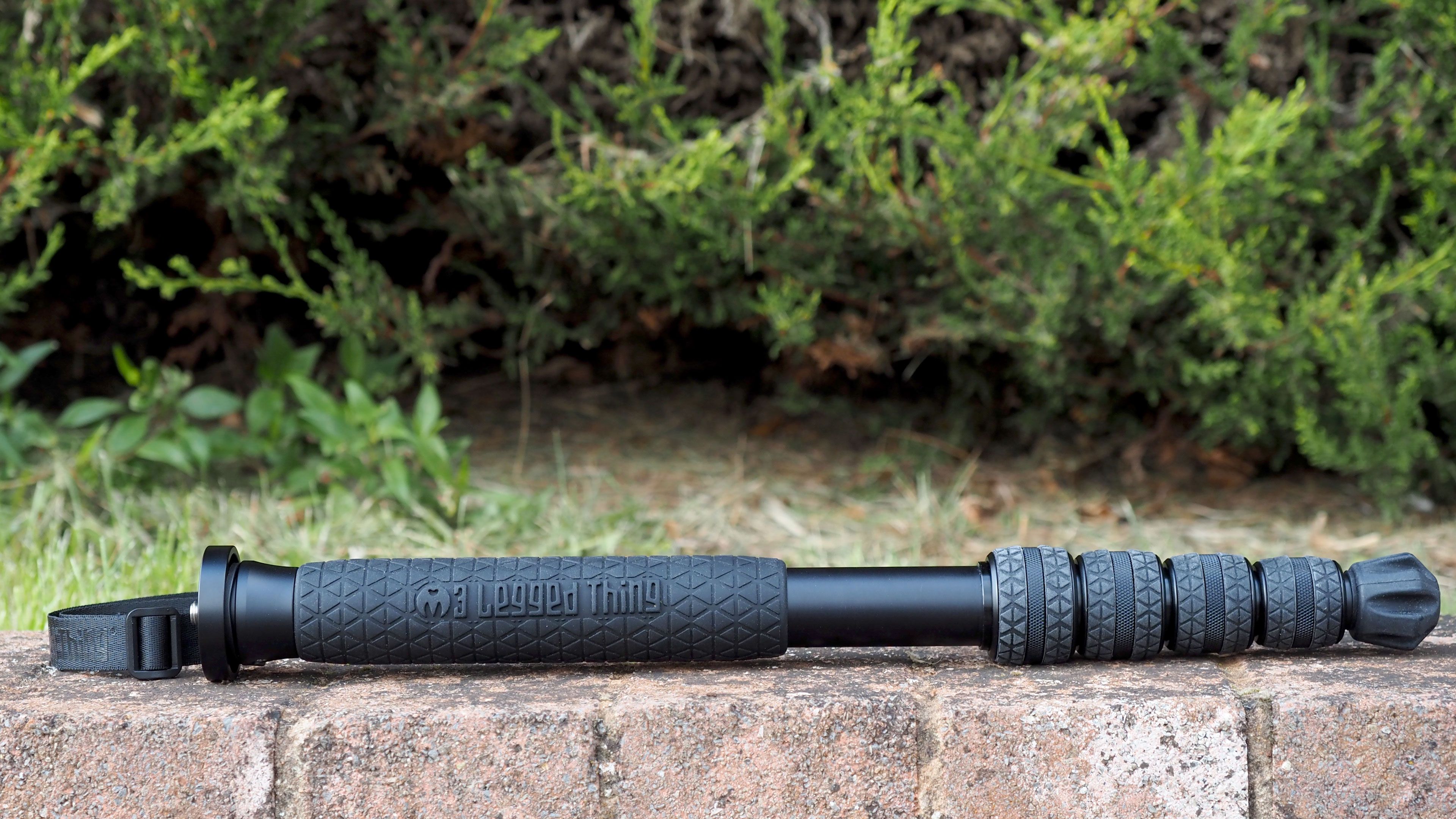
The optional Docz feet simply screw into the base and have a collar which can be tightened for use as a free-standing support, or loosened off to provide freedom of movement for panning or tilting movements.
Speaking of which, there’s currently no tilt or ball head option. Monopod users seem divided on this issue, some saying it’s not needed while others would prefer a head of some sort. It’s easy enough to attach one of your own, though, via the dual-size screw attachment in the top.
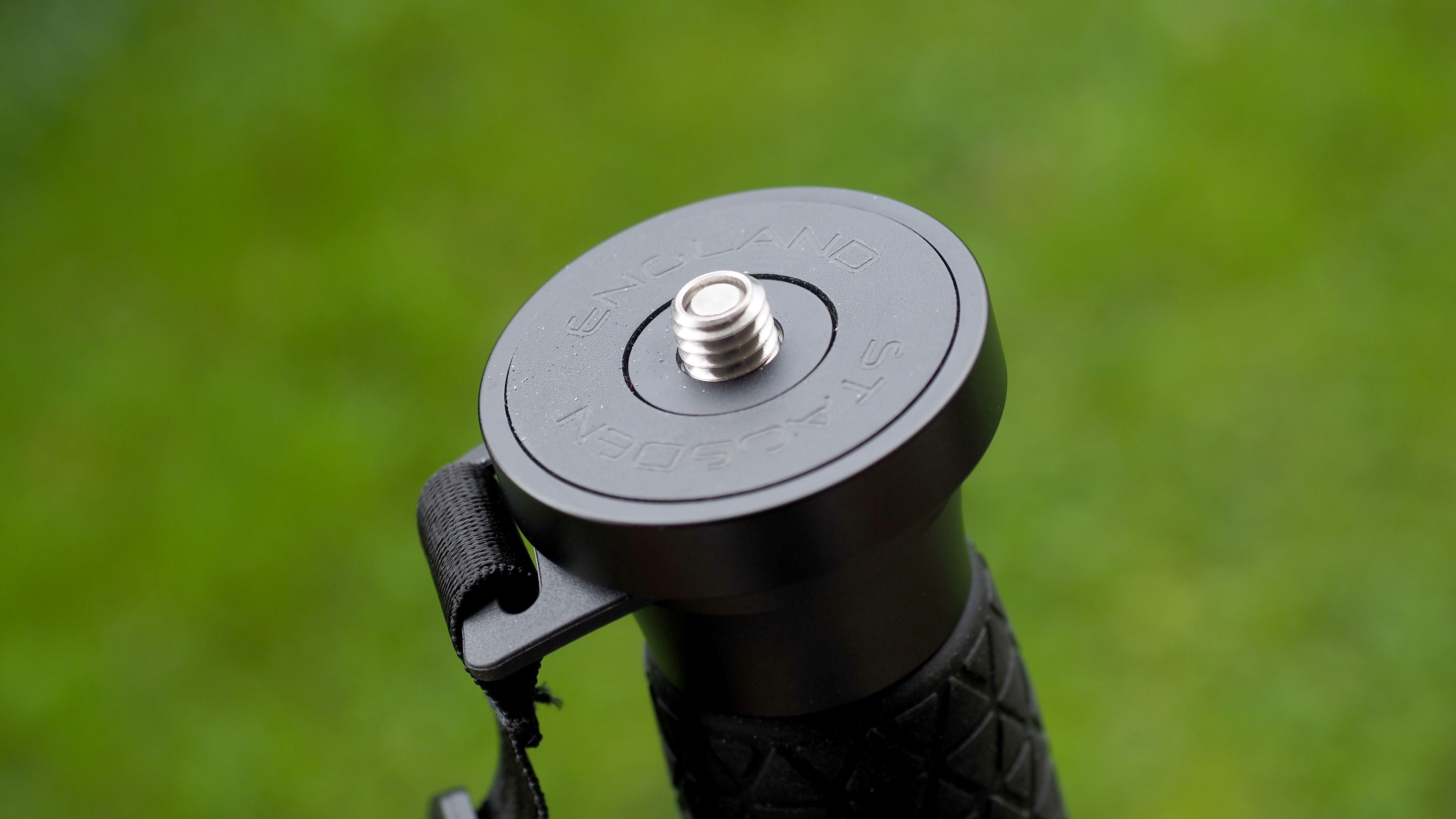
3 Legged Thing Taylor 2.0: Build and handling
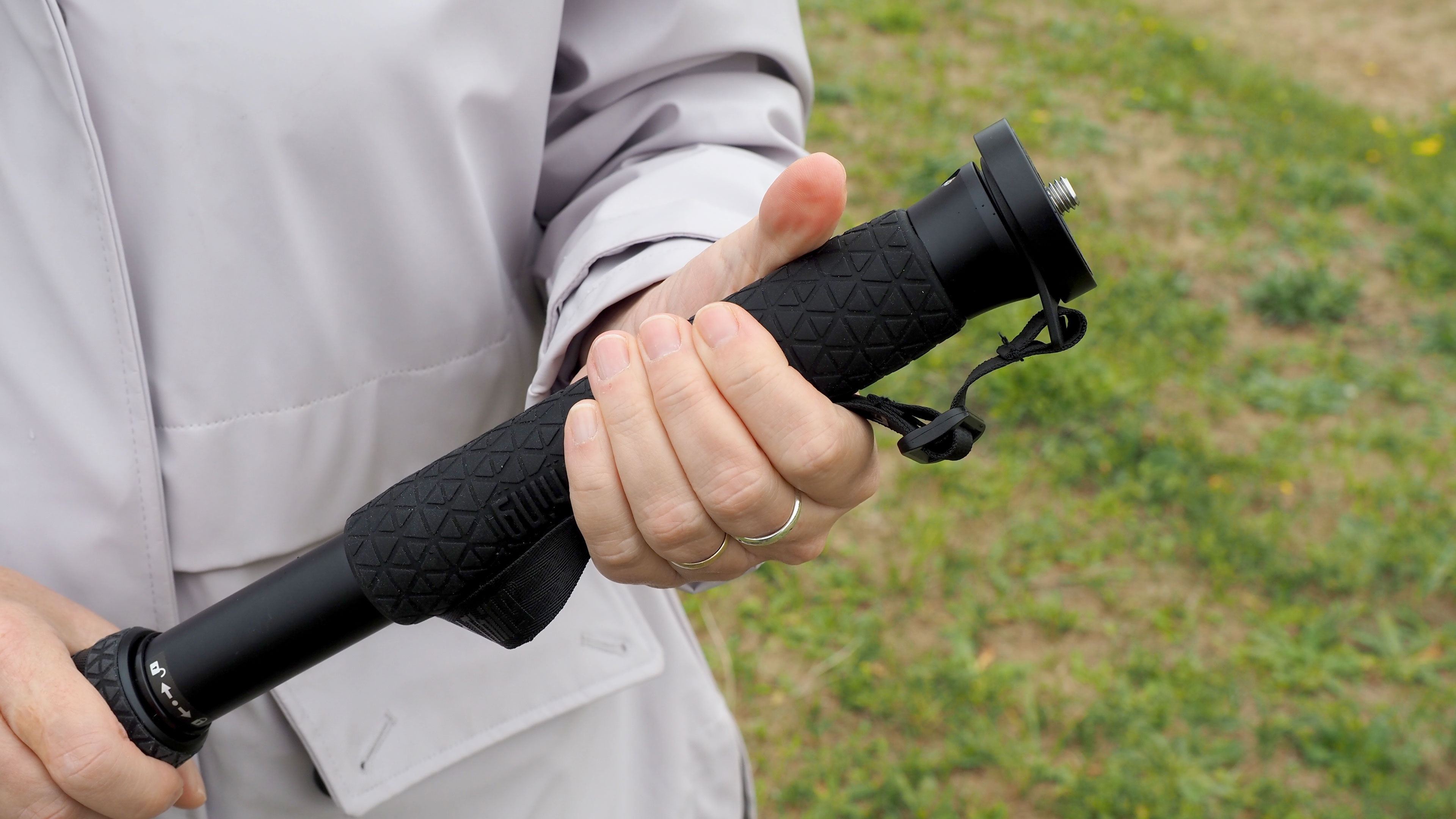
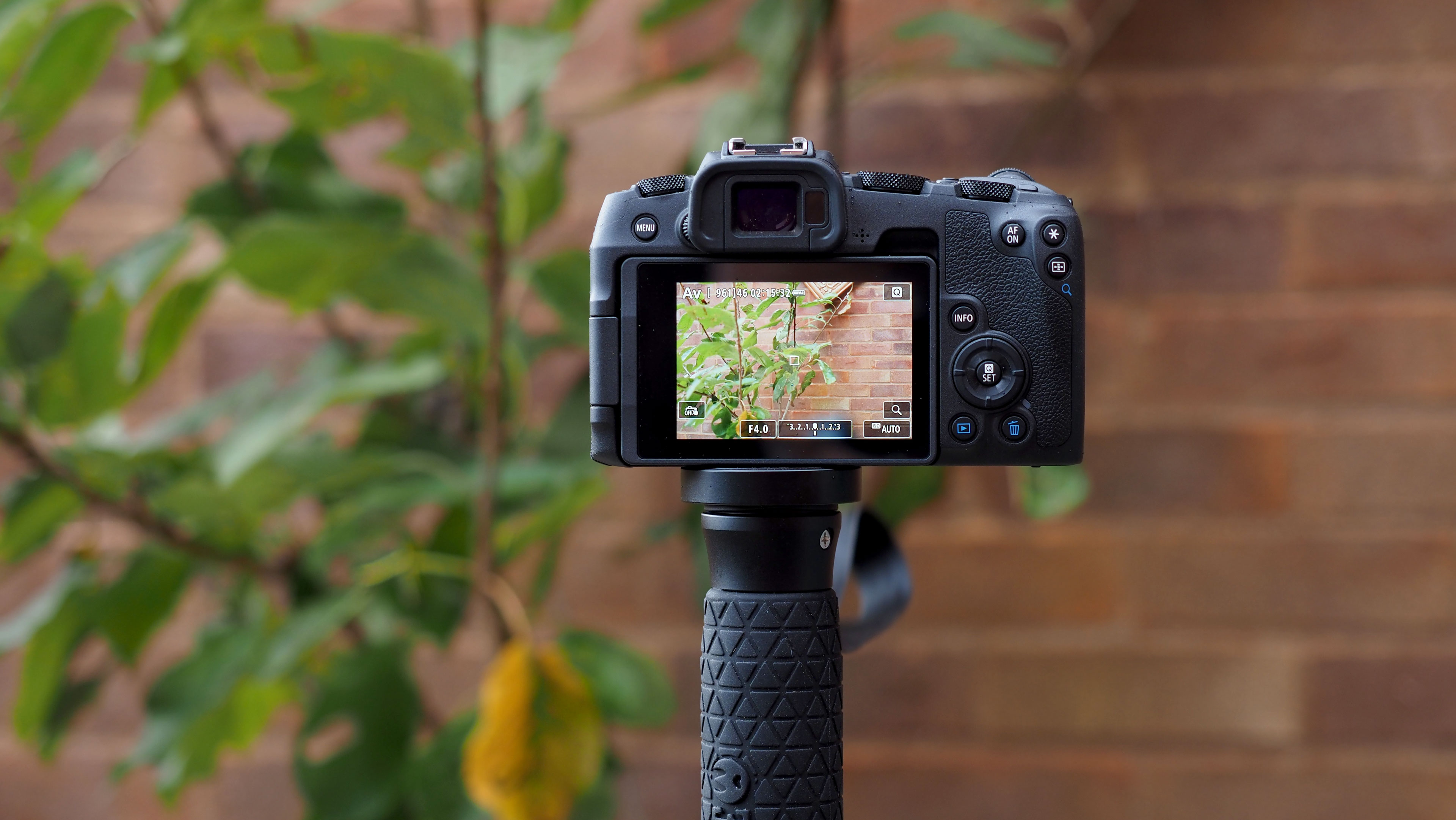
It might not be a premium carbon fiber model, but the Taylor 2.0 feels extremely well made and not that heavy. The twist locks on the legs loosen and tighten with a short turn and when tightened with only a moderate effort they grip really hard, with no slippage at all even if you put your weight on the top.
The dual-thread screw on the top platform is a near touch. The 3/8” thread is exposed by default (the standard size for most tripod heads) but if you attempt to attach a camera directly, this pushes back to reveal a 1/4” screw to fit the base of the camera.
The Docz feet are quick to attach, but you have to make sure you put the standard rubber foot somewhere safe because you’ll need to reattach it to use the Taylor 2.0 like a regular monopod again.
The rubber grip on the top section is a good size, and the wrist strap provides a little extra security, though it’s a shame it’s non-removable – it can be a bit irritating if it gets caught up with your other camera gear or backpack straps.
3 Legged Thing Taylor 2.0: Performance
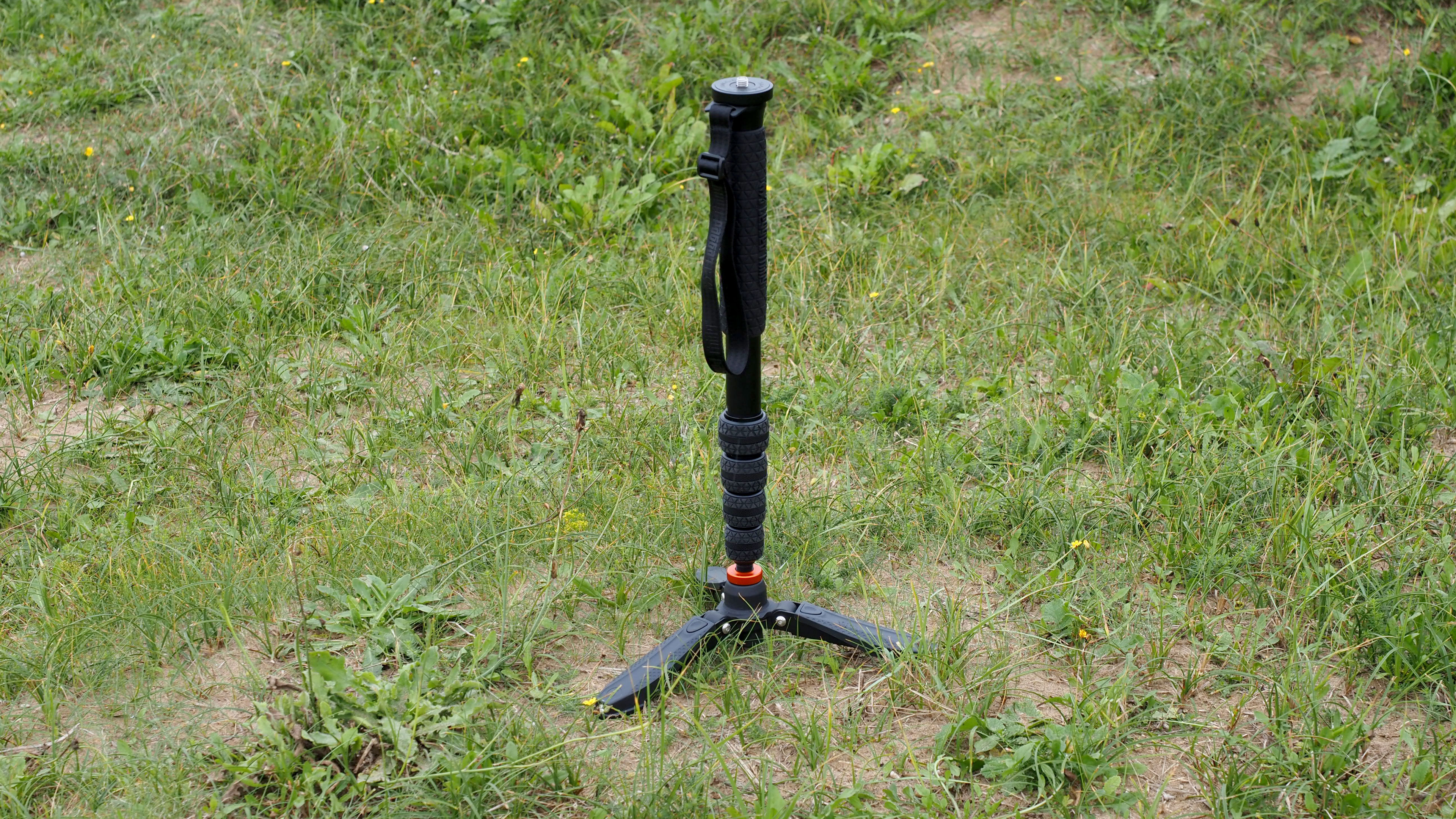
We didn’t have any 30kg weights handy to test 3 Legged Thing’s 30kg payload claim, but the Taylor 2.0 does feel absolutely rock solid and we’ve no reason to doubt it (who actually HAS a 30kg camera kit?).
The Docz feet work very well too, though if you’re going to use the Taylor 2.0 as a free-standing camera support, you’ll want to choose a level surface and lock the ball joint down tight – and stay nearby in case the wind gets up. The setup works really well indoors, though, where it takes up a much smaller footprint than a regular tripod, even if it doesn’t offer the same kind of stability.
3 Legged Thing Taylor 2.0: Final Verdict
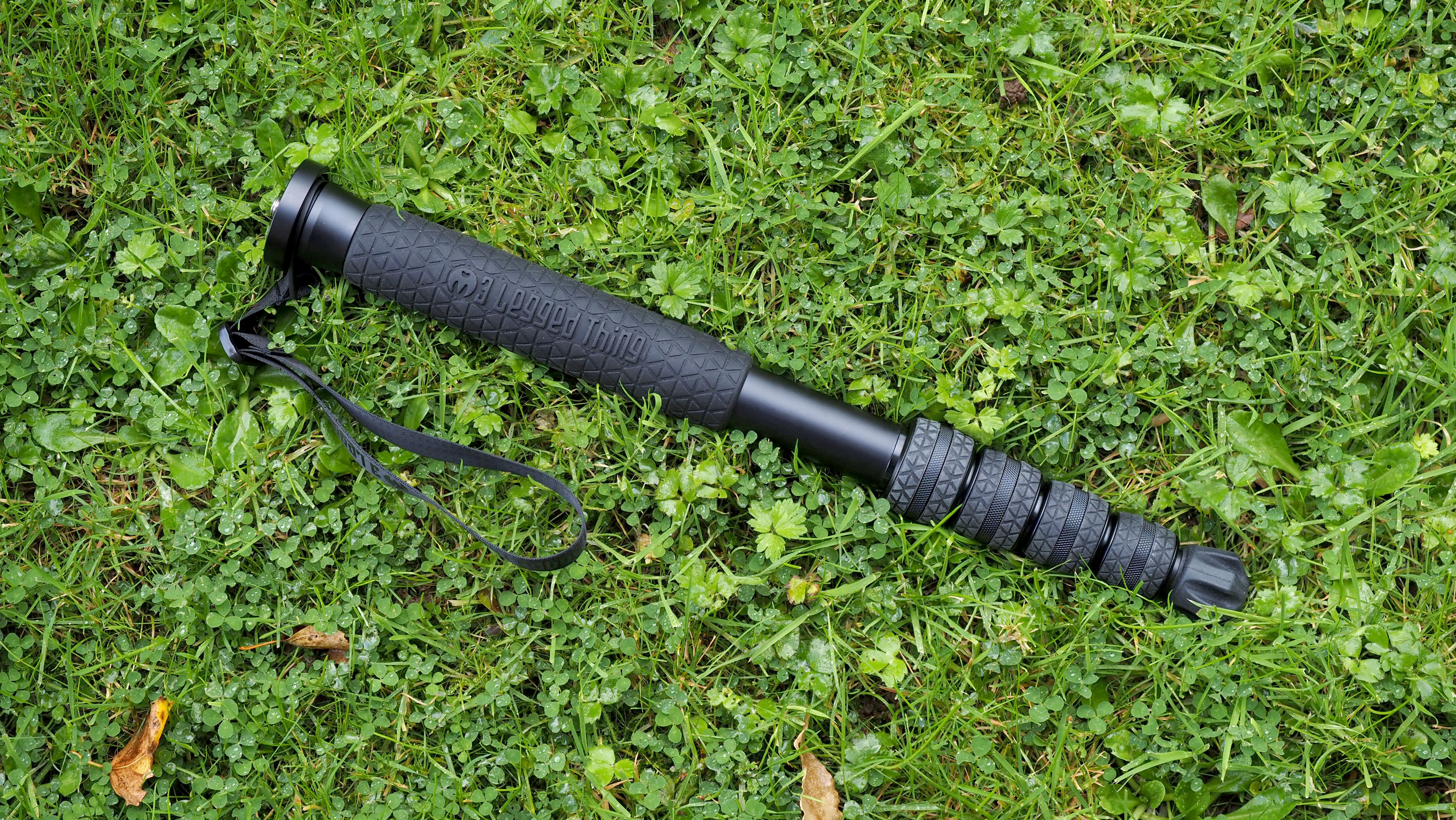
The 3 Legged Thing Taylor 2.0 is a really solid, no-nonsense tripod at a fair price, given its generous maximum height, rigid feel and materials. The Docz feet are an interesting extra and are available with the Taylor 2.0 as a bundle, but while they are fine on a flat surface, everything gets a bit wobbly if you extend more than a couple of leg sections – though they do give the monopod a more solid grounding if you’re holding it at the same time for static or panning shots.
But it would be better still if the Taylor 2.0 came with an optional head, even one with a simple tilt mechanism. Without that, it’s difficult to photograph or film things on the ground or up high, without leaning at all sorts of awkward angles.
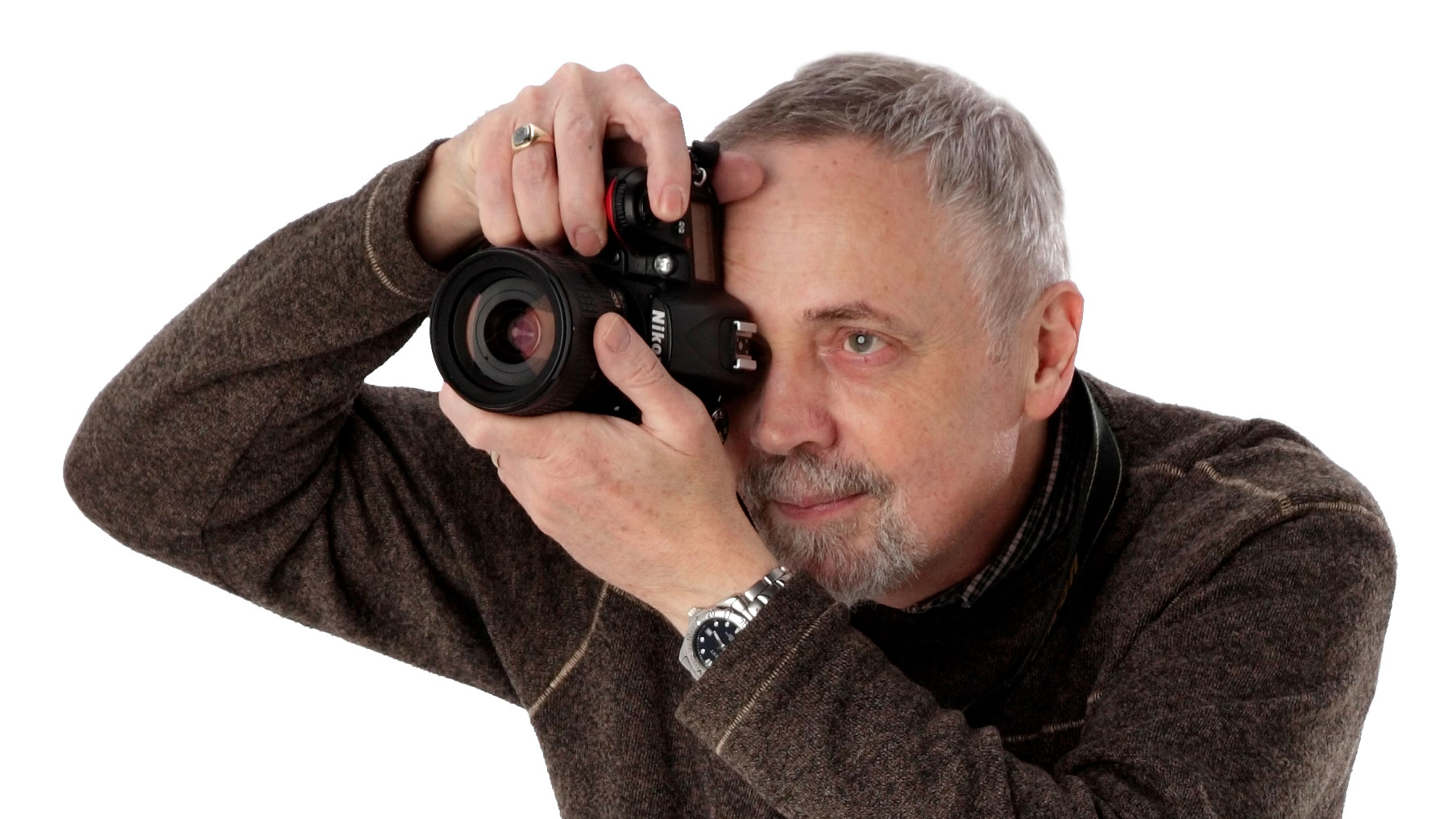
Rod is an independent photography journalist and editor, and a long-standing Digital Camera World contributor, having previously worked as DCW's Group Reviews editor. Before that he has been technique editor on N-Photo, Head of Testing for the photography division and Camera Channel editor on TechRadar, as well as contributing to many other publications. He has been writing about photography technique, photo editing and digital cameras since they first appeared, and before that began his career writing about film photography. He has used and reviewed practically every interchangeable lens camera launched in the past 20 years, from entry-level DSLRs to medium format cameras, together with lenses, tripods, gimbals, light meters, camera bags and more. Rod has his own camera gear blog at fotovolo.com but also writes about photo-editing applications and techniques at lifeafterphotoshop.com
